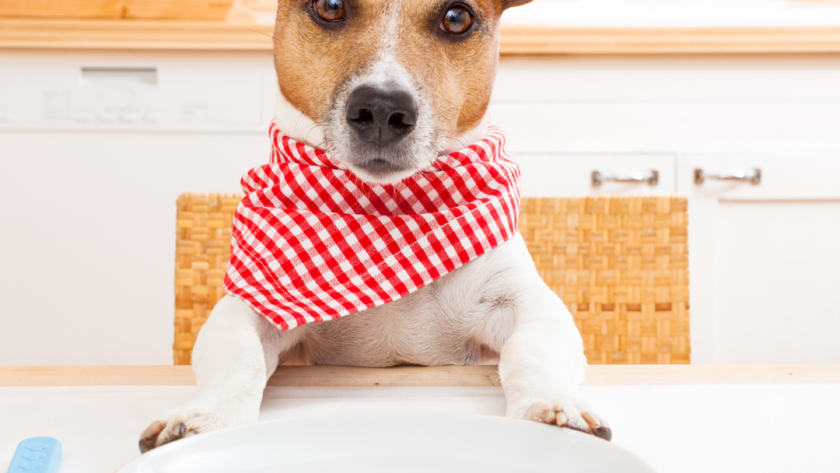Ensuring proper nutrition for your dog means you’re providing your dog with the energy components and building blocks necessary for its growth, development and longevity. There are lots of ways you can feed your dog and numerous diets to choose from. Most typically, you can go for dry and canned dog food as it’s convenient and affordable, but you can always tweak it and use alternatives to give better nutrition to your particular dog.
A dog’s nutrition should be suitable for its age, breed, conditions and lifestyle, and since it plays a significant role in the quality of your dog’s life, it’s important to get the right information regarding the keys to proper nutrition.
The keys to proper nutrition
There are several dietary components that are fundamental keys to canine nutrition: proteins, fats, carbohydrates, minerals and vitamins. Proteins are made up of amino acids and are the building blocks of cell growth and maintenance. In dogs, fur and hair maintenance demands a lot of protein, up to 30% of daily intakes. Fats are an essential energy source for dogs necessary for normal and healthy cells as well as carbs that are broken down during digestion and converted into glucose.
Vitamins that come from either organic or synthetic sources are necessary for a dog’s normal body functions. They help convert calories into energy and they boost the body’s processes and immune response. Minerals make up less than 1% of a dog’s body weight but are crucial nutrients for many important functions, such as development, growth, healthy teeth and strong bones.
These components should be combined to suit a dog’s age, size, physical and medical condition, and lifestyle. This is why you can find a large variety of dog food for each stage of your dog’s life.
Nutrition according to age

Puppies require a lot of care initially and puppy food needs to be specifically formulated for growing dogs. In general, puppies need twice as many calories as adult dogs of the same breed. Their feeding should start with highly nutritious and scientifically formulated puppy food at about 4 weeks of age, and it’s best when given in several, well-spaced meals 2-3 times daily. As they’re still in training and learning about discipline and routine, you should look into pet supplies online for a suitable food dispenser so the feeding process goes smoother.
Each dog is unique and so no dog food works equally well for all dogs. As they develop and grow, look into protein content and pick food that has a good balance of caloric and nutritional requirements crucial for adult dogs’ health and wellness. At this stage in a dog’s life, it’s very important to apply portion control regardless of the feeding method so you avoid overfeeding and obesity.
After 8 years, dogs are considered seniors so their nutritional needs change. If your senior dog is in good health, you may not need to make big changes, but if certain health issues have arisen over the years, your dog will need some dietary changes. This typically means reducing the calorie intake but still maintaining a well-balanced, healthy diet. Protein levels will generally have to be maintained but you’ll also have to ensure the protein comes from high-quality sources as most senior dogs have a diminished capacity to assimilate proteins.
Covering all bases
In addition to ensuring your dog gets all the nutrients necessary for healthy growth and development, you must also monitor your dog’s weight. In Australia only, one in three dogs is overweight and such pets live shorter and less active lives than their healthy and fit counterparts. Overweight dogs are less playful and energetic, they’re not very active and spend most of their time lying around instead of interacting with their families and dog buddies. This extra weight puts additional pressure on their heart, limbs and joints, and can increase the risk of diabetes, heart disease, arthritis and other complications.
Treats

As previously mentioned, a well-balanced diet is instrumental for your dog’s health, but dogs love treats just as much as humans do. Treats can be part of a healthy diet for your pet but you must make sure what you give them and how much. In general, treats shouldn’t make up more than 10% of their daily calorie intake. Instead of store-bought snacks, treat your pet to fresh veggie or fruit snacks such as baby carrots, green beans, banana slices, watermelon or apples. Avoid anything that has a high fat or sugar content and stay away from anything that could damage your pet’s teeth.
Properly balanced nutrition is essential for your dog’s development and good health. To function optimally, both humans and dogs need a certain combination of protein, carbohydrates, fats, vitamins, minerals and water. With the information given here and from your dog’s vet, you will be able to provide your dog with food designed for specific stages of life that also offers hypoallergenic nutrition and other formulations needed to control specific health conditions if there are any.



